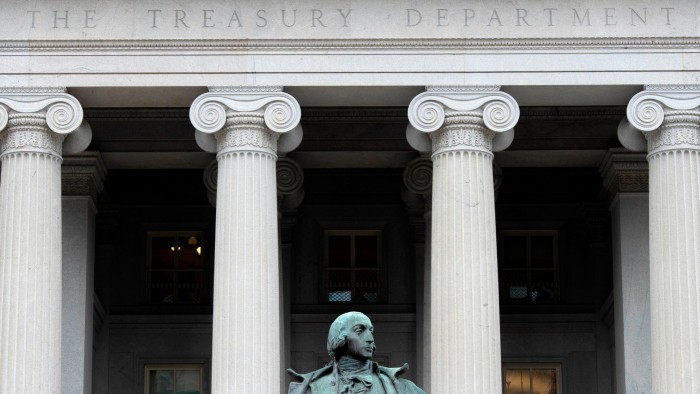Unlock the White House Watch newsletter for free
Your guide to what Trump’s second term means for Washington, business and the world
The US Treasury department has asked Congress to scrap a provision in Donald Trump’s flagship budget bill that would allow Washington to raise taxes on foreign investments, reversing a plan that Wall Street warned could roil markets.
Treasury secretary Scott Bessent said on Thursday that the measure was no longer needed because he had secured concessions for US companies to the new OECD global minimum tax regime.
Bessent said on X that his agency had asked lawmakers to remove the so-called Section 899 provision in Trump’s “big, beautiful” budget bill. The legislation has already passed the House of Representatives and is under consideration in the Senate, with a vote potentially coming as soon as this weekend.
Section 899 would allow the US government to impose retaliatory taxes on companies and investors from countries that it deemed to have punitive tax policies — such as those allowed under the OECD regime.
Some banks and investors had argued Section 899 could cause a drop in foreign investment in US companies and markets.
UK chancellor Rachel Reeves described the Treasury secretary’s decision to call on Congress to strike Section 899 as “important”, saying the progress provided “certainty for business”.
Bessent said the US had reached an “understanding” with other members of the G7 group of leading nations, which dominate the OECD, which would make Section 899 unnecessary.
A deal on the minimum tax regime would prevent the loss of more than $100bn in American taxpayer dollars, according to Treasury estimates, Bessent said.
“OECD Pillar 2 taxes will not apply to US companies, and we will work cooperatively to implement this agreement across the OECD-G20 Inclusive Framework in coming weeks and months,” he wrote.
Pillar 2 of the new OECD regime introduces a global minimum 15 per cent corporate tax rate with measures allowing other countries to collect the levies if companies’ home countries do not. The regime started to take effect this year.
The global minimum tax was designed as one half of a groundbreaking deal agreed by more than 135 countries at the OECD in 2021 to prevent tax avoidance by multinationals and update the international tax system for a digital age.
The first “pillar” of the deal, which aimed to close tax loopholes for Big Tech groups and multinationals, has not been enacted. The second pillar, the global minimum tax, was implemented by several countries in 2024.
The OECD deal had been supported by the US Treasury under the Biden administration but had not been passed by Congress, due in part to resistance from Republicans. When the Trump administration came to power it took a hostile stance to the agreement.
Republicans have been particularly unhappy about part of the OECD deal called the undertaxed profits rule, which would allow other countries to levy top-up taxes on US companies.
The rule, which they have branded as “discriminatory”, would permit governments to increase taxes on a local subsidiary of a multinational group if the multinational paid less than 15 per cent in corporate tax in any other jurisdiction.
Additional reporting by Paola Tamma in Brussels



